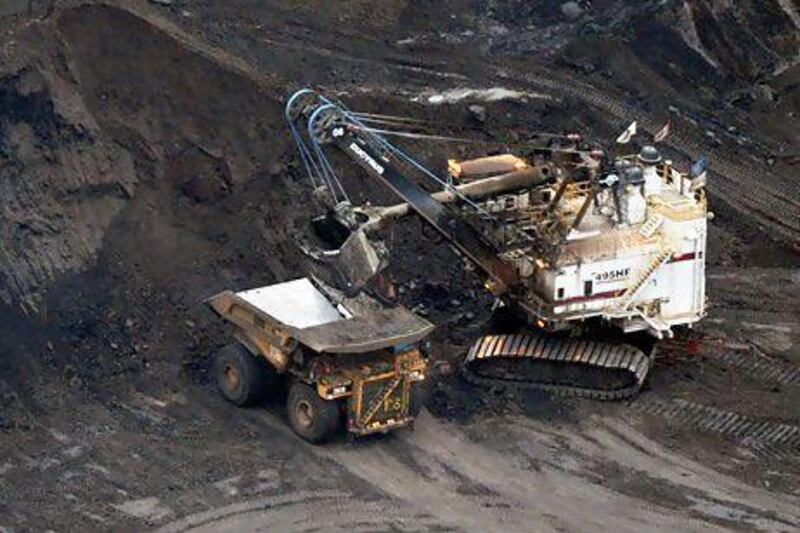Its name begins with A and this energy-rich part of a larger federation has some of the world's largest oil reserves. It has enjoyed a remarkable boom over the past decade due to high oil prices.
But with success comes challenges: advancing alternative energy, finding new customers for its exports, managing the strains with other parts of the country that its wealth brings, and using its earnings to develop its people.
But this is not A for Abu Dhabi, but A for the Canadian province of Alberta.
Cal Dallas, Alberta's minister of international relations, was in Abu Dhabi this month for the Adipec conference. His talks with officials in the capital revealed that these two energy powerhouses have more in common than might at first appear.
With growing talk of energy self-sufficiency in the United States, Mr Dallas was keen to highlight that the US remains the key export market for Canadian oil and gas. Yet like Abu Dhabi, his province is turning towards Asia as a customer of growing importance.
Although the reasons are somewhat different, Alberta is, as with Abu Dhabi's Fujairah pipeline, seeking to build new pipelines to the ocean to connect more easily with Japan, China, South Korea and others.
This demands some tricky negotiations with neighbouring British Columbia, and with indigenous groups along the route.
The oil sands, probably the world's single largest accumulation of petroleum, have driven Alberta oil exports over the past decade. But they have also attracted environmental opprobrium over concerns of water contamination, damage to pristine boreal forests, and high carbon dioxide emissions.
Alberta has belatedly realised the threat to its brand, particularly with the delay to approval of the Keystone XL pipeline to the US, and has launched a campaign to stress its environmental credentials.
The oil sands can be environmentally acceptable only if the emitted carbon dioxide is stored underground. With Shell's government-backed Quest project, Alberta has taken an important step towards realising large-scale carbon capture and storage, which Masdar is also advancing at the Emirates Steel plant.
Primarily driven by Alberta, Canada is the world's third-largest producer of gas, ahead of even Qatar and Iran, and three times as much as the UAE's output. Yet its gas reserves are only a third of the UAE's, showing the power of market-based pricing and the effective application of technology by private firms.
Just as in the US, shale gas is taking off in Canada, which may soon be a major liquefied natural gas exporter to Asia. Using the same techniques, Alberta's light oil production, long thought to be in terminal decline, is reviving, presenting a challenge to Opec over the next decade.
Canadian oil companies are, surprisingly, not well represented in the Middle East.
Three of the biggest, PetroCanada (now Suncor), EnCana and Nexen, have all largely withdrawn in recent years, finding more attractive opportunities at home.
But Mr Dallas was keen to stress the role of Canadian energy technologies - from oil and gas to environmental protection, nuclear power (where the UAE has a deal to cooperate with Canada on uranium supply), and solar power, with companies such as SkyPower.
The boom in Canadian natural resources has led to a strong currency, often trading at parity to the US dollar, and to accusations of "de-industrialisation" in eastern provinces such as Ottawa and Quebec.
Finding a balance, without killing the goose that lays the golden eggs, is part of the task of the federal government.
Mr Dallas drew attention to the responsibility on the provincial government to turn petroleum money into human development.
And, different though they are, this is perhaps where Abu Dhabi needs to learn most from Alberta: investment in education, and in building an entrepreneurial economy.
At the same time, Alberta manages to preserve its laid-back, outdoors lifestyle, ensuring there is much more to this province than oil and gas.
* Robin Mills is the head of consulting at Manaar Energy, and the author of The Myth of the Oil Crisis and Capturing Carbon





